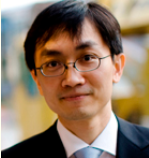Date & Time:Nov. 25, 2020 14:00- 15:30pm
Venue:Virtual Seminar
https://meeting.tencent.com/s/n5ImRpV2M2XA
Meeting ID:203 598 328
Speaker:Tuan-Hwee Sng(National University of Singapore)
Abstract:
Patterns of political unification and fragmentation have crucial implications for comparative economic development. Diamond (1997) famously argued that “fractured land” was responsible for China’s tendency toward political unification and Europe’s protracted political fragmentation. We build a dynamic model with granular geographical information in terms of topographical features and the location of productive agricultural land to quantitatively gauge the effects of “fractured land” on state formation in Eurasia. We find that either topography or productive land alone is sufficient to account for China’s recurring political unification and Europe’s persistent political fragmentation. The existence of a core region of high land productivity in Northern China plays a central role in our simulations. We discuss how our results map into observed historical outcomes and assess how robust our findings are.
Speaker Biography:
Tuan-Hwee Sng is an Associate Professor of Economics at the National University of Singapore (NUS). He received his Ph.D. in Economics at Northwestern University in 2011. Past appointments include a Postdoctoral Fellowship at the Niehaus Center for Globalization and Governance, Princeton University, and a Visiting Associate Professorship at the Institute of Economic Research, Hitotsubashi University.
Tuan-Hwee’s research interests are in Economic History and Political Economy, with a focus on East Asia. He has built a research program with several coauthors that studies the process of state building in China, Japan, and Europe from a comparative perspective. Tuan-Hwee has recently published in journals such as Applied Geography, Explorations in Economic History, International Economic Review, and Journal of Economic Growth.




